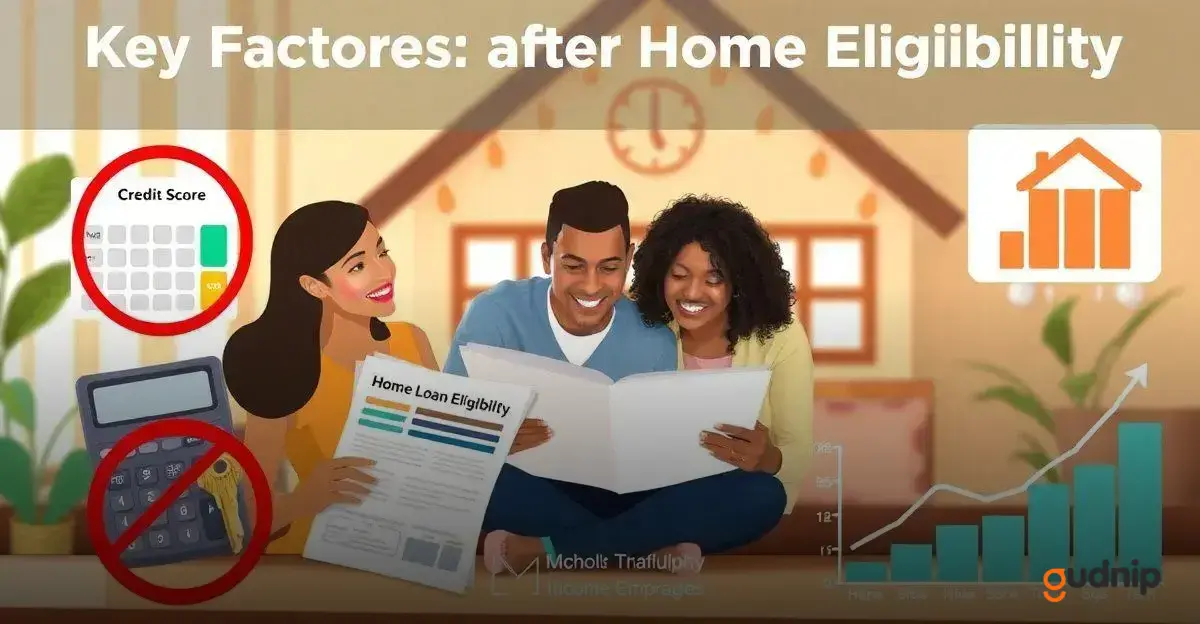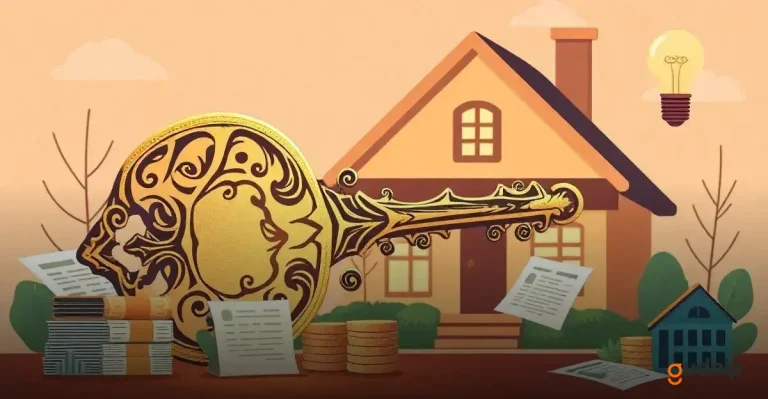Home loan is a crucial element for many Americans looking to buy a home. Understanding the various types of loans available can save you money and simplify your path to ownership. Knowing how factors like credit scores and down payments affect eligibility can make a world of difference.
As you explore the nuances of home loans, you’ll uncover tips that can help you secure the best rates and avoid common mistakes that many first-time buyers make. This knowledge empowers you to take control of your home-buying journey.
Ready to learn more about the different loan options and strategies for successful applications? Let’s dive in!
Understanding Different Types of Home Loans
Understanding different types of home loans is crucial for potential buyers. There are several options available, each tailored to different financial situations and needs.
Fixed-rate loans are one popular choice, allowing buyers to lock in their interest rates for the entire term of the loan. This stability can be beneficial for budgeting over time.
Alternatively, adjustable-rate mortgages (ARMs) can start with lower rates that may increase after an introductory period. These loans can be suitable for those who plan to move or refinance within a few years.
Government-backed loans, such as FHA loans, are designed to assist low-to-moderate income buyers, while VA loans are exclusively for veterans and active military service members. Understanding these options can significantly impact your home-buying journey.
Before choosing a home loan, it is important to assess your financial situation, consider your long-term plans, and consult with a mortgage professional. This thorough approach will ensure you select a loan that aligns with your budget and lifestyle goals.
Key Factors Affecting Home Loan Eligibility

Key factors affecting home loan eligibility are varied and crucial for prospective buyers. First, your credit score plays a major role in determining your ability to secure a loan.
Lenders typically look for scores above 620 for conventional loans, while government-backed loans may have more flexible requirements.
Next, your debt-to-income ratio (DTI) is examined. This ratio compares your total monthly debt payments to your gross monthly income. A lower DTI is favorable and often recommended to be below 43% for optimal loan approval chances.
The amount of down payment you can provide also influences your eligibility. Typically, a down payment of 20% can help you avoid private mortgage insurance (PMI), which adds to your monthly costs.
Employment stability is another consideration. Lenders prefer borrowers with a consistent job history, ideally for at least two years in the same field.
Finally, the type of loan program you choose will dictate specific eligibility requirements, with some programs catering to first-time buyers, veterans, or those seeking affordable housing.
The Home Loan Application Process Explained
The home loan application process can seem overwhelming, but understanding the steps involved can simplify it. First, evaluate your financial situation.
This includes checking your credit score and gathering necessary documents like income statements, tax returns, and bank statements.
Next, it’s essential to get pre-approved for a loan. This involves a lender assessing your financial status and telling you how much you can borrow. Pre-approval gives you an idea of your budget and shows sellers that you are a serious buyer.
Once pre-approved, you’ll submit a formal loan application. This paperwork includes detailed information about your income, assets, and debt.
After submission, the lender will perform an underwriting process, where they assess the risk of lending to you. They may request additional documentation during this phase.
After underwriting, you will receive a loan estimate. This document outlines the terms and costs of the loan. Review it carefully and ask your lender any questions you might have.
Finally, if everything checks out and you agree to the terms, you’ll go through the closing process. This step includes signing paperwork and paying any closing costs. After closing, you will officially have your new home loan!
Tips for Securing the Best Home Loan Rates

Securing the best home loan rates is essential for saving money over the life of your loan.
First, it’s important to maintain a healthy credit score. Aim for a score above 700, as this can help you qualify for lower interest rates. Paying bills on time and reducing debt can improve your score.
Next, consider the down payment. A larger down payment often results in better rates. Many lenders offer better terms to those who put down 20% or more, which also helps you avoid private mortgage insurance (PMI).
Another tip is to shop around. Different lenders may offer varying rates based on their criteria. Obtain quotes from multiple lenders and compare them carefully. Look not just at the interest rates but also at the closing costs associated with each loan.
Your loan type matters too. For instance, fixed-rate loans typically have higher rates than adjustable-rate mortgages (ARMs) at first. However, consider your long-term plans before committing to a loan type.
Lastly, timing can be key. Monitor the market trends to see when rates drop. Locking in a low rate can save you a significant amount in interest throughout the loan term.
Common Mistakes to Avoid When Applying for a Home Loan
Applying for a home loan can be a complex process, and many applicants make common mistakes that can hinder their chances of approval.
First, one of the biggest errors is not checking their credit report ahead of time. Understanding your credit score and correcting any inaccuracies can improve your chances for better rates and terms.
Another mistake is not calculating a proper budget. Borrowers should consider their total expenses, including property taxes, insurance, and maintenance costs, when assessing what they can afford.
Failing to get pre-approved for a mortgage is another issue. This step demonstrates to sellers that you are a serious buyer while also helping you identify your budget early in the process.
Then, some applicants rush their decision without comparing multiple lenders. Shopping around for different loan offers can lead to lower interest rates and better terms.
Finally, borrowers sometimes overlook the importance of documentation. Be prepared with all necessary paperwork, such as income verification and tax returns, to ensure a smooth application process.
Conclusion
Understanding the home loan process is essential for any potential buyer. By learning about the different types of home loans, knowing the key factors that affect eligibility, and recognizing common mistakes to avoid, you can make informed decisions.
Utilizing tips to secure the best rates can save you money in the long run. Remember, preparation and research are key components in achieving your dream of homeownership.
Always take your time to assess options and consult with professionals when necessary. Home loans are a significant commitment, and being well-informed will lead to a successful purchase.





